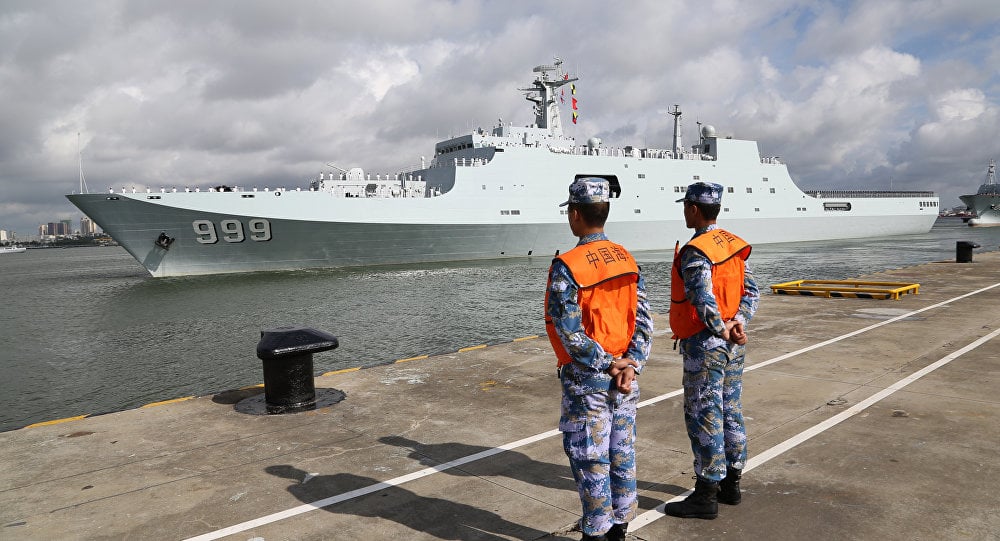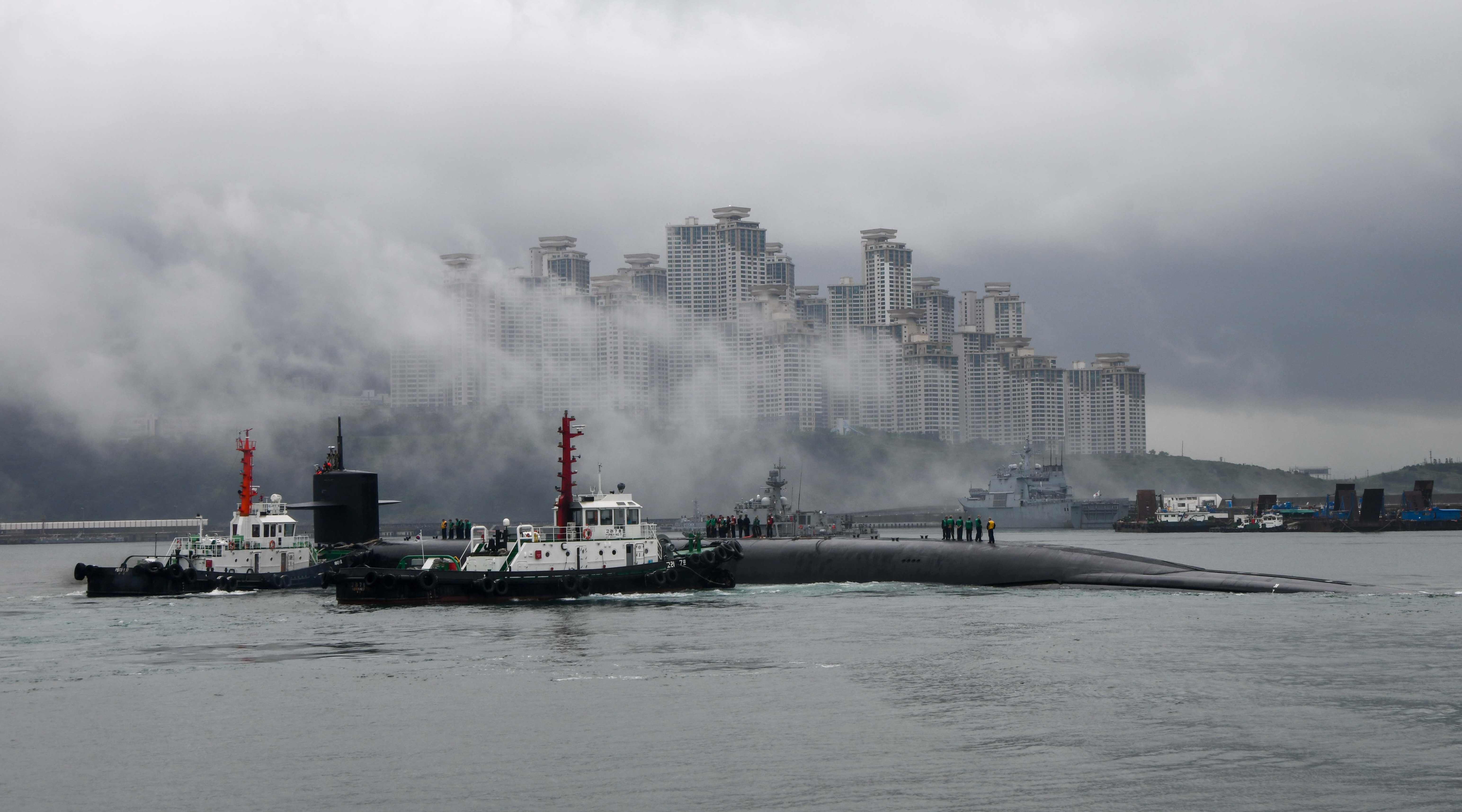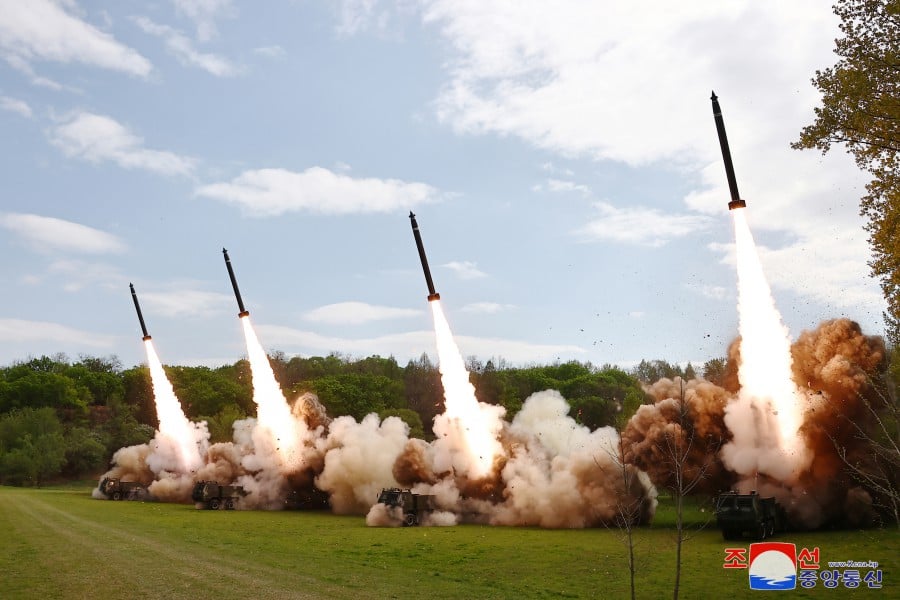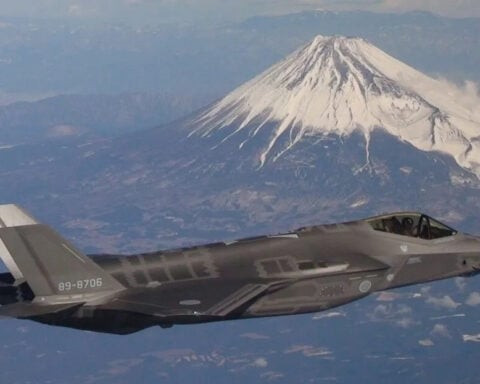
China, through its ongoing One Belt/One Road Initiative, is increasingly challenging the United States’ ability “to move freely in a business environment and across the oceans,” the retired vice admiral heading one of the nation’s top trade groups said Monday.
Speaking at the Center for Strategic and International Studies on Monday, retired Vice Adm. Andy Brown warned, “over time, our ability [to conduct maritime business in U.S.-flagged ships] has eroded immensely.”
To illustrate the U.S. maritime decline, Brown said the American merchant marine has slipped from 101 ships when he was on active duty to 81 today. And the makeup of those ships poses additional risk beyond their slim numbers: “Only a handful of those are tankers … less than five,” said Brown, who now serves as president of the National Transportation Association. He asked rhetorically, “How are we going to get fuel to the troops” in a time of war?
With fewer ships, there has also been a corresponding decline in the number of merchant mariners and construction contracts for American shipyards.
In comparison, Brown added, “we’re not dealing with free market initiatives when it comes to China” since the government owns many of these companies and controls the banks.
Overall, the One Belt/One Road Initiative, which began five years ago, has expanded its reach and scope beyond an Asian infrastructure development project, often compared to the Marshall Plan for the rebuilding of Europe after World War II, Jonathan Hillman, director of the center’s Reconnecting Asia Project, said at the event. The initiative has now helped Beijing merge its economic and security goals, with a heavy emphasis on maritime commerce and defense, with its worldwide diplomatic interests.
Djibouti, on the Horn of Africa, provides a leading example of China’s maritime and security uses of One Belt/One Road to expand its influence far beyond Asia and the South China Sea.
Judd Devermont, director of CSIS’ Africa Program, said that, with 10,000 companies and a million Chinese nationals working on the continent of Africa and having experienced its ships on the Indian Ocean hijacked by pirates, Beijing sees upgrading its initial port investment in Djibouti to a full-fledged naval station as a necessary move. The expansion “gives it new diplomatic advantages and security gains,” as well as more economic influence there and across the rest of Africa.
For a recipient nation, “the Chinese are the only ones to invest” in Djibouti and are interested in a “long-time partnership,” Devermont said, quoting Djibouti President Ismail Omar Guelleh. Guelleh has said he had not been approached by the United States and Europe about such a long-term economic commitment when he signed an agreement with Beijing allowing the naval base, which is located near American and French facilities already there.
Closer to its borders, when China looks at South Asia it sees opportunity in countries such as Sri Lanka or Bangladesh, which may be a “connectivity bandwagon” for international trade – from transshipping automobiles to bunkering fuel for tankers and cargo carriers, Nilanthi Samaranayake, an analyst at CNA on China and Indo-Pacific Security, said at the event.
Although these nations, with the sharp exception of India, view “China as one partner out of many” to develop internal infrastructure for local economic growth and the facilities to expand their international trade, they have grown more cautious following Beijing’s takeover of a large port in southern Sri Lanka following a default on loan payments.
That takeover and the cancellation and suspension of $23 billion worth of development projects in Malaysia caused China to revisit how it will do business under One Belt/One Road.
Amy Searight, CSIS’ director of Southeast Asia program, said at the event that “these deals seemed to be very lopsided” in Malaysia and elsewhere. She said the Chinese were particularly stung by accusations of “new colonialism” and “unequal treatment” when the contracts were scrubbed. Also often dubbed “debt-trap diplomacy,” the contracts combined high-interest rates, few job opportunities for local workers, large upfront payments to Chinese companies – both private and government-controlled – and corruption surrounding kickbacks to government officials.
“Beijing worried about the ‘contagion effect'” the accusations would have in the developing world, leading to loss of business, she said. As a result, China has changed a number of its business practices, to include renegotiating loans and hiring more local workers, but not managers. Several of the panelists noted it also is exercising more restraint before investing in questionable projects, as the Sri Lankan port proved to be.
Even if China is evolving how it carries out this One Belt/One Road Initiative, Searight said Beijing’s need for the policy is evident in Southeast Asia. For the Chinese, there is a “Malaccan dilemma” of having its energy supplies choked off in the Strait there, hence their interest in developing ports in Pakistan and Bangladesh and possibly Thailand to create other shipping options and take that risk off the table.
While these Southeast Asian countries may not look to the United States to build ports, highways, rail lines and airports, “they want the United States engaged securing freedom of navigation” and having a visible presence, including by its leaders at regional gatherings, Searight said.





